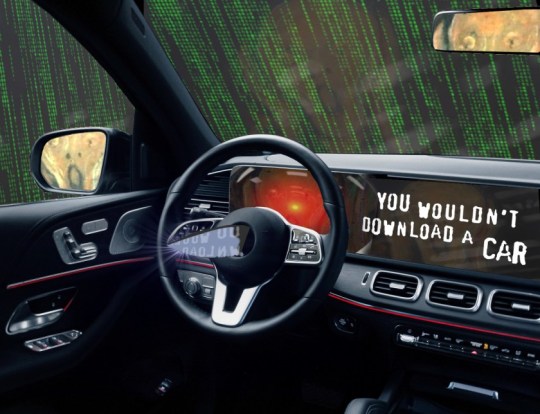#Car Insurance State Farm
Text
#tiktok#scammed#stolen vehicle#scam alert#scam#scammers#carmax#late stage capitalism#capitalism is the worst#capitalism is evil#capitalism kills#capitalism#psa#state farm#insurance#car insurance
18 notes
·
View notes
Text
Like a “good neighbor” State Farm is where??
I thought with insurance, you’re supposed to feel “assured”. Some fantasy right?
Our “full coverage” insurance- you know, the one that’s supposed to fix or replace your car only paid our car off and left us with nothing.
A $20k car with $6K of cosmetic damage is not a “total loss” especially when we only wanted the windows replaced.
What the hell do I do now “good neighbor”?
My mom wanted me to have that car when she passed away. On her death bed she told me “Just take my car, everything will be alright” - Sitting in that drivers seat made me feel like she was still with us and keeping me safe. I don’t want to say goodbye to that car, it’s way more than just another number… but not to these scumbags who only want your money and couldn’t care about anything more.
Let me be the good neighbor and give you this advice. People are not numbers. Treat people with love and respect because that’s fading in this world quicker than my will to go on.
Do better, get better, and BE better.
-your neighbor.
To all the actual good neighbors out there, share this with everyone. We are more than numbers. We are people and we deserve to be treated as people.
#state farm#insurance#someone help#please help#injustice#help#car trouble#loss#heartbroken#friends#neighbors#arkansas#gofundus#help us#left alone#no future
3 notes
·
View notes
Text

#car insurance#car insurance quotes#cheap car insurance#insurance quotes#auto insurance#auto insurance quote#cheap auto insurance#cheap insurance#car insurance companies#state farm car insurance#the general car insurance#temporary car insurance#comprehensive car insurance#breakdown cover#car insurance near me#state farm quote#best car insurance#usaa car insurance#commercial auto insurance#car insurance online#auto insurance companies#direct line car insurance#cheap insurance quotes#aaa auto insurance#admiral car insurance#state farm auto insurance#full coverage car insurance#affordable car insurance#cheap car insurance quotes#classic car insurance
0 notes
Text
Had a dream where my car insurance went up to about a thousand dollars per month for just the basic coverage. I called up my insurance (State Farm) to ask why.
State Farm claimed that they had no idea what I was talking about, but urged me to pay the money anyway. They then said if I paid that amount now, they would fix it in such a way where the 1K would be evenly broken up for the actual amount due each month (meaning I'd be covered by insurance for almost a full year). I said "Oh okay!" and paid online.
The next month, they billed me for another 1K, and I decided it was just easier to drive uninsured.
0 notes
Text
Workers' Compensation Insurance: Todaybdonlinenews
Workers’ Compensation Insurance: Todaybdonlinenews: Workplace safety is paramount, yet accidents happen. Workers’ Compensation Insurance stands as a safeguard, offering financial and medical protection to employees while providing legal coverage to employers. This comprehensive guide delves into the nuances of workers’ compensation, its legal framework, benefits, challenges, and the evolving…

View On WordPress
#boat insurance#business insurance#car insurance companies#comprehensive car insurance#home insurance quotes#life insurance companies#life insurance policy#life insurance quotes#medicaid#medicare advantage plans#small business insurance#Small Business Insurance: Todaybdonlinenews#state farm car insurance#travel insurance compare#workers compensation insurance#Workers&039; Compensation Insurance: Todaybdonlinenews
0 notes
Text
Finding Affordable Auto Insurance in Texas, the Lone Star State
Finding Affordable Auto Insurance in the Lone Star State, Texas”
Intro
Searching for cheap auto insurance in Texas can be a daunting task. While it may seem challenging, there are several reputable insurance companies offering competitive rates for Texans. In this comprehensive guide, we will explore the cheapest car insurance providers in the state, broken down by coverage levels and various…

View On WordPress
#Auto Insurance in Texas#CAR INSURANCE#car insurance texas#Fred Loya Insurance#Geico#State Farm#Texas Farm Bureau#USAA
0 notes
Text
state farm car insurance and review
state farm car insurance and review – State Farm is one of the largest auto insurance providers in the United States and offers a wide variety of coverage options and services. Here are the complete details for State Farm auto insurance:
Coverage Options:
Liability Coverage: This is the most basic coverage required by law. This includes both bodily injury liability and property damage…
View On WordPress
#state farm car insurance california#state farm car insurance phone number#state farm car insurance quotes#state farm car insurance rates#state farm car insurance requirements
0 notes
Text
Why the fuck is adulting so annoying
#I just want car insurance but here’s the kicker State Farm won’t do it#which means no other big companies will insure it#it’s also annoying because my parents had insurance for it through State Farm
1 note
·
View note
Text
Your car spies on you and rats you out to insurance companies

I'm on tour with my new, nationally bestselling novel The Bezzle! Catch me TOMORROW (Mar 13) in SAN FRANCISCO with ROBIN SLOAN, then Toronto, NYC, Anaheim, and more!

Another characteristically brilliant Kashmir Hill story for The New York Times reveals another characteristically terrible fact about modern life: your car secretly records fine-grained telemetry about your driving and sells it to data-brokers, who sell it to insurers, who use it as a pretext to gouge you on premiums:
https://www.nytimes.com/2024/03/11/technology/carmakers-driver-tracking-insurance.html
Almost every car manufacturer does this: Hyundai, Nissan, Ford, Chrysler, etc etc:
https://www.repairerdrivennews.com/2020/09/09/ford-state-farm-ford-metromile-honda-verisk-among-insurer-oem-telematics-connections/
This is true whether you own or lease the car, and it's separate from the "black box" your insurer might have offered to you in exchange for a discount on your premiums. In other words, even if you say no to the insurer's carrot – a surveillance-based discount – they've got a stick in reserve: buying your nonconsensually harvested data on the open market.
I've always hated that saying, "If you're not paying for the product, you're the product," the reason being that it posits decent treatment as a customer reward program, like the little ramekin warm nuts first class passengers get before takeoff. Companies don't treat you well when you pay them. Companies treat you well when they fear the consequences of treating you badly.
Take Apple. The company offers Ios users a one-tap opt-out from commercial surveillance, and more than 96% of users opted out. Presumably, the other 4% were either confused or on Facebook's payroll. Apple – and its army of cultists – insist that this proves that our world's woes can be traced to cheapskate "consumers" who expected to get something for nothing by using advertising-supported products.
But here's the kicker: right after Apple blocked all its rivals from spying on its customers, it began secretly spying on those customers! Apple has a rival surveillance ad network, and even if you opt out of commercial surveillance on your Iphone, Apple still secretly spies on you and uses the data to target you for ads:
https://pluralistic.net/2022/11/14/luxury-surveillance/#liar-liar
Even if you're paying for the product, you're still the product – provided the company can get away with treating you as the product. Apple can absolutely get away with treating you as the product, because it lacks the historical constraints that prevented Apple – and other companies – from treating you as the product.
As I described in my McLuhan lecture on enshittification, tech firms can be constrained by four forces:
I. Competition
II. Regulation
III. Self-help
IV. Labor
https://pluralistic.net/2024/01/30/go-nuts-meine-kerle/#ich-bin-ein-bratapfel
When companies have real competitors – when a sector is composed of dozens or hundreds of roughly evenly matched firms – they have to worry that a maltreated customer might move to a rival. 40 years of antitrust neglect means that corporations were able to buy their way to dominance with predatory mergers and pricing, producing today's inbred, Habsburg capitalism. Apple and Google are a mobile duopoly, Google is a search monopoly, etc. It's not just tech! Every sector looks like this:
https://www.openmarketsinstitute.org/learn/monopoly-by-the-numbers
Eliminating competition doesn't just deprive customers of alternatives, it also empowers corporations. Liberated from "wasteful competition," companies in concentrated industries can extract massive profits. Think of how both Apple and Google have "competitively" arrived at the same 30% app tax on app sales and transactions, a rate that's more than 1,000% higher than the transaction fees extracted by the (bloated, price-gouging) credit-card sector:
https://pluralistic.net/2023/06/07/curatorial-vig/#app-tax
But cartels' power goes beyond the size of their warchest. The real source of a cartel's power is the ease with which a small number of companies can arrive at – and stick to – a common lobbying position. That's where "regulatory capture" comes in: the mobile duopoly has an easier time of capturing its regulators because two companies have an easy time agreeing on how to spend their app-tax billions:
https://pluralistic.net/2022/06/05/regulatory-capture/
Apple – and Google, and Facebook, and your car company – can violate your privacy because they aren't constrained regulation, just as Uber can violate its drivers' labor rights and Amazon can violate your consumer rights. The tech cartels have captured their regulators and convinced them that the law doesn't apply if it's being broken via an app:
https://pluralistic.net/2023/04/18/cursed-are-the-sausagemakers/#how-the-parties-get-to-yes
In other words, Apple can spy on you because it's allowed to spy on you. America's last consumer privacy law was passed in 1988, and it bans video-store clerks from leaking your VHS rental history. Congress has taken no action on consumer privacy since the Reagan years:
https://www.eff.org/tags/video-privacy-protection-act
But tech has some special enshittification-resistant characteristics. The most important of these is interoperability: the fact that computers are universal digital machines that can run any program. HP can design a printer that rejects third-party ink and charge $10,000/gallon for its own colored water, but someone else can write a program that lets you jailbreak your printer so that it accepts any ink cartridge:
https://www.eff.org/deeplinks/2020/11/ink-stained-wretches-battle-soul-digital-freedom-taking-place-inside-your-printer
Tech companies that contemplated enshittifying their products always had to watch over their shoulders for a rival that might offer a disenshittification tool and use that as a wedge between the company and its customers. If you make your website's ads 20% more obnoxious in anticipation of a 2% increase in gross margins, you have to consider the possibility that 40% of your users will google "how do I block ads?" Because the revenue from a user who blocks ads doesn't stay at 100% of the current levels – it drops to zero, forever (no user ever googles "how do I stop blocking ads?").
The majority of web users are running an ad-blocker:
https://doc.searls.com/2023/11/11/how-is-the-worlds-biggest-boycott-doing/
Web operators made them an offer ("free website in exchange for unlimited surveillance and unfettered intrusions") and they made a counteroffer ("how about 'nah'?"):
https://www.eff.org/deeplinks/2019/07/adblocking-how-about-nah
Here's the thing: reverse-engineering an app – or any other IP-encumbered technology – is a legal minefield. Just decompiling an app exposes you to felony prosecution: a five year sentence and a $500k fine for violating Section 1201 of the DMCA. But it's not just the DMCA – modern products are surrounded with high-tech tripwires that allow companies to invoke IP law to prevent competitors from augmenting, recongifuring or adapting their products. When a business says it has "IP," it means that it has arranged its legal affairs to allow it to invoke the power of the state to control its customers, critics and competitors:
https://locusmag.com/2020/09/cory-doctorow-ip/
An "app" is just a web-page skinned in enough IP to make it a crime to add an ad-blocker to it. This is what Jay Freeman calls "felony contempt of business model" and it's everywhere. When companies don't have to worry about users deploying self-help measures to disenshittify their products, they are freed from the constraint that prevents them indulging the impulse to shift value from their customers to themselves.
Apple owes its existence to interoperability – its ability to clone Microsoft Office's file formats for Pages, Numbers and Keynote, which saved the company in the early 2000s – and ever since, it has devoted its existence to making sure no one ever does to Apple what Apple did to Microsoft:
https://www.eff.org/deeplinks/2019/06/adversarial-interoperability-reviving-elegant-weapon-more-civilized-age-slay
Regulatory capture cuts both ways: it's not just about powerful corporations being free to flout the law, it's also about their ability to enlist the law to punish competitors that might constrain their plans for exploiting their workers, customers, suppliers or other stakeholders.
The final historical constraint on tech companies was their own workers. Tech has very low union-density, but that's in part because individual tech workers enjoyed so much bargaining power due to their scarcity. This is why their bosses pampered them with whimsical campuses filled with gourmet cafeterias, fancy gyms and free massages: it allowed tech companies to convince tech workers to work like government mules by flattering them that they were partners on a mission to bring the world to its digital future:
https://pluralistic.net/2023/09/10/the-proletarianization-of-tech-workers/
For tech bosses, this gambit worked well, but failed badly. On the one hand, they were able to get otherwise powerful workers to consent to being "extremely hardcore" by invoking Fobazi Ettarh's spirit of "vocational awe":
https://www.inthelibrarywiththeleadpipe.org/2018/vocational-awe/
On the other hand, when you motivate your workers by appealing to their sense of mission, the downside is that they feel a sense of mission. That means that when you demand that a tech worker enshittifies something they missed their mother's funeral to deliver, they will experience a profound sense of moral injury and refuse, and that worker's bargaining power means that they can make it stick.
Or at least, it did. In this era of mass tech layoffs, when Google can fire 12,000 workers after a $80b stock buyback that would have paid their wages for the next 27 years, tech workers are learning that the answer to "I won't do this and you can't make me" is "don't let the door hit you in the ass on the way out" (AKA "sharpen your blades boys"):
https://techcrunch.com/2022/09/29/elon-musk-texts-discovery-twitter/
With competition, regulation, self-help and labor cleared away, tech firms – and firms that have wrapped their products around the pluripotently malleable core of digital tech, including automotive makers – are no longer constrained from enshittifying their products.
And that's why your car manufacturer has chosen to spy on you and sell your private information to data-brokers and anyone else who wants it. Not because you didn't pay for the product, so you're the product. It's because they can get away with it.
Cars are enshittified. The dozens of chips that auto makers have shoveled into their car design are only incidentally related to delivering a better product. The primary use for those chips is autoenshittification – access to legal strictures ("IP") that allows them to block modifications and repairs that would interfere with the unfettered abuse of their own customers:
https://pluralistic.net/2023/07/24/rent-to-pwn/#kitt-is-a-demon
The fact that it's a felony to reverse-engineer and modify a car's software opens the floodgates to all kinds of shitty scams. Remember when Bay Staters were voting on a ballot measure to impose right-to-repair obligations on automakers in Massachusetts? The only reason they needed to have the law intervene to make right-to-repair viable is that Big Car has figured out that if it encrypts its diagnostic messages, it can felonize third-party diagnosis of a car, because decrypting the messages violates the DMCA:
https://www.eff.org/deeplinks/2013/11/drm-cars-will-drive-consumers-crazy
Big Car figured out that VIN locking – DRM for engine components and subassemblies – can felonize the production and the installation of third-party spare parts:
https://pluralistic.net/2022/05/08/about-those-kill-switched-ukrainian-tractors/
The fact that you can't legally modify your car means that automakers can go back to their pre-2008 ways, when they transformed themselves into unregulated banks that incidentally manufactured the cars they sold subprime loans for. Subprime auto loans – over $1t worth! – absolutely relies on the fact that borrowers' cars can be remotely controlled by lenders. Miss a payment and your car's stereo turns itself on and blares threatening messages at top volume, which you can't turn off. Break the lease agreement that says you won't drive your car over the county line and it will immobilize itself. Try to change any of this software and you'll commit a felony under Section 1201 of the DMCA:
https://pluralistic.net/2021/04/02/innovation-unlocks-markets/#digital-arm-breakers
Tesla, naturally, has the most advanced anti-features. Long before BMW tried to rent you your seat-heater and Mercedes tried to sell you a monthly subscription to your accelerator pedal, Teslas were demon-haunted nightmare cars. Miss a Tesla payment and the car will immobilize itself and lock you out until the repo man arrives, then it will blare its horn and back itself out of its parking spot. If you "buy" the right to fully charge your car's battery or use the features it came with, you don't own them – they're repossessed when your car changes hands, meaning you get less money on the used market because your car's next owner has to buy these features all over again:
https://pluralistic.net/2023/07/28/edison-not-tesla/#demon-haunted-world
And all this DRM allows your car maker to install spyware that you're not allowed to remove. They really tipped their hand on this when the R2R ballot measure was steaming towards an 80% victory, with wall-to-wall scare ads that revealed that your car collects so much information about you that allowing third parties to access it could lead to your murder (no, really!):
https://pluralistic.net/2020/09/03/rip-david-graeber/#rolling-surveillance-platforms
That's why your car spies on you. Because it can. Because the company that made it lacks constraint, be it market-based, legal, technological or its own workforce's ethics.
One common critique of my enshittification hypothesis is that this is "kind of sensible and normal" because "there’s something off in the consumer mindset that we’ve come to believe that the internet should provide us with amazing products, which bring us joy and happiness and we spend hours of the day on, and should ask nothing back in return":
https://freakonomics.com/podcast/how-to-have-great-conversations/
What this criticism misses is that this isn't the companies bargaining to shift some value from us to them. Enshittification happens when a company can seize all that value, without having to bargain, exploiting law and technology and market power over buyers and sellers to unilaterally alter the way the products and services we rely on work.
A company that doesn't have to fear competitors, regulators, jailbreaking or workers' refusal to enshittify its products doesn't have to bargain, it can take. It's the first lesson they teach you in the Darth Vader MBA: "I am altering the deal. Pray I don't alter it any further":
https://pluralistic.net/2023/10/26/hit-with-a-brick/#graceful-failure
Your car spying on you isn't down to your belief that your carmaker "should provide you with amazing products, which brings your joy and happiness you spend hours of the day on, and should ask nothing back in return." It's not because you didn't pay for the product, so now you're the product. It's because they can get away with it.
The consequences of this spying go much further than mere insurance premium hikes, too. Car telemetry sits at the top of the funnel that the unbelievably sleazy data broker industry uses to collect and sell our data. These are the same companies that sell the fact that you visited an abortion clinic to marketers, bounty hunters, advertisers, or vengeful family members pretending to be one of those:
https://pluralistic.net/2022/05/07/safegraph-spies-and-lies/#theres-no-i-in-uterus
Decades of pro-monopoly policy led to widespread regulatory capture. Corporate cartels use the monopoly profits they extract from us to pay for regulatory inaction, allowing them to extract more profits.
But when it comes to privacy, that period of unchecked corporate power might be coming to an end. The lack of privacy regulation is at the root of so many problems that a pro-privacy movement has an unstoppable constituency working in its favor.
At EFF, we call this "privacy first." Whether you're worried about grifters targeting vulnerable people with conspiracy theories, or teens being targeted with media that harms their mental health, or Americans being spied on by foreign governments, or cops using commercial surveillance data to round up protesters, or your car selling your data to insurance companies, passing that long-overdue privacy legislation would turn off the taps for the data powering all these harms:
https://www.eff.org/wp/privacy-first-better-way-address-online-harms
Traditional economics fails because it thinks about markets without thinking about power. Monopolies lead to more than market power: they produce regulatory capture, power over workers, and state capture, which felonizes competition through IP law. The story that our problems stem from the fact that we just don't spend enough money, or buy the wrong products, only makes sense if you willfully ignore the power that corporations exert over our lives. It's nice to think that you can shop your way out of a monopoly, because that's a lot easier than voting your way out of a monopoly, but no matter how many times you vote with your wallet, the cartels that control the market will always win:
https://pluralistic.net/2024/03/05/the-map-is-not-the-territory/#apor-locksmith

Name your price for 18 of my DRM-free ebooks and support the Electronic Frontier Foundation with the Humble Cory Doctorow Bundle.

If you'd like an essay-formatted version of this post to read or share, here's a link to it on pluralistic.net, my surveillance-free, ad-free, tracker-free blog:
https://pluralistic.net/2024/03/12/market-failure/#car-wars

Image:
Cryteria (modified)
https://commons.wikimedia.org/wiki/File:HAL9000.svg
CC BY 3.0
https://creativecommons.org/licenses/by/3.0/deed.en
#pluralistic#if you're not paying for the product you're the product#if you're paying for the product you're the product#cars#automotive#enshittification#technofeudalism#autoenshittification#antifeatures#felony contempt of business model#twiddling#right to repair#privacywashing#apple#lexisnexis#insuretech#surveillance#commercial surveillance#privacy first#data brokers#subprime#kash hill#kashmir hill
2K notes
·
View notes
Text
State Farm Insurance
Customers and communities rely on us to help them face life's uncertainties. They trust us for guidance with insurance needs, financial planning, and strengthening the community.
CONTACT:
State Farm Insurance
2625 Louisiana St, Houston, TX 77006, USA
Tel: 832-286-0160
#state farm#state farm insurance#state farm claims#state farm bill pay#farm insurance#state farm careers#state farm renters insurance#customer service for state farm#state farm pay bill#state farm life insurance#state farm customer service#state farm customer ser#state farm car insurance#state farm jobs#state farm home insurance#state farm auto insurance#state farm quote#renters insurance#state farm near me#flowers
1 note
·
View note
Text
0 notes
Text
3 Ways to Get the Best Insurance Quotes
3 Ways to Get the Best Insurance Quotes
Why Get More Than One Insurance Quote?
When choosing an insurance plan, it is important to get more than one insurance quotes. This is because some terms may change from one quote to the next, and companies may request more information when writing policies. Make sure you read over your quotes carefully to make sure they cover all of the important coverage for your situation. It is also…

View On WordPress
#annuity#business insurance quotes#car insurance quotes state farm#cheap car insurance quotes#life insurance quotes#motorcycle insurance#renters insurance quotes#term life insurance quotes
0 notes
Text
Commercial I would produce as an advertising executive:
We are treated to a succession of interviews with several different billionaires concerning their plans for the future.
"Humanity's destiny is in the stars," says the cool, young social media entrepreneur. "My new company will build a Mars colony in the next twenty years, and from there? The galaxy. The universe!"
"My next project is to render the human body obsolete," says the rideshare app CEO. "The mind-machine interface is no longer science fiction, it's reality. Soon, we will upload our minds to the cloud and live in virtual reality. Or as I call it, paradise!"
"We have forgotten God, and the traditional family values He has set out for us," says the aging, old-money oil man. "But my political contributions and policy think tanks will bring about an end to this age of sin and decadence!"
"Climate change is far from inevitable," says the real-estate mogul. "With my investments in green energy, we are only a technological breakthrough or two away from ending and reversing global climate change. As far as I'm concerned, the world has already been saved!"
Now we get to see how their plans turn out. A space ship drifts through oblivion and inside, all the lights are off. The social media entrepreneur is in his space suit, his lifeless eyes staring out into the void. It turns out his rocket ship was about as reliable as his electric cars.
Then we see the rideshare CEO. Or rather, his virtual avatar. He sits in the lotus position, meditating before a peaceful, pixelated field of grass. His eyes snap open. And then, he shrieks in agony. Back in the real world, his brain is in a jar, crisscrossed with wires and electrodes, suspended in fluid that is beginning to boil. The lab is on fire. Let's hope they fix this little glitch in the next patch.
The old-money oil man is long dead, of course, but his great-great-grandson lives on. We see him in the crumbling ruins of the Vatican, ritualistically sacrificing a lamb on a great pyre before the shit-smeared remains of the Pope's golden throne to the cheers of his tribe. An orgy breaks out to celebrate the occasion and we see the oil billionaire's progeny swallow a mouthful of the moon priestess' urine. "Thank you, daddy," he says, wiping his mouth. Now that's what I call "family values".
Finally, we see a field of shattered solar panels beneath a red sun, like so many broken windows in the sand in every direction as far as the eye can see. This place is not a place of honor. No highly esteemed deed is commemorated here. Nothing valued is here. What is here was dangerous and repulsive to us.
Sometimes, things just don't go the way you planned. When that happens, State Farm Insurance has you covered.
1K notes
·
View notes
Text
Small Business Insurance: Todaybdonlinenews
Introduction: Small Business Insurance: Todaybdonlinenews
Small Business Insurance: Todaybdonlinenews:- Starting a business is an exciting venture, but it comes with inherent risks. Small business insurance stands as a crucial safeguard against unforeseen circumstances, ensuring the longevity and protection of your entrepreneurial dreams.
Importance of Small Business Insurance
Business…

View On WordPress
#boat insurance#business insurance#car insurance companies#comprehensive car insurance#home insurance quotes#life insurance companies#life insurance policy#life insurance quotes#medicaid#medicare advantage plans#small business insurance#Small Business Insurance: Todaybdonlinenews#state farm car insurance#travel insurance compare#workers compensation insurance
0 notes
Text

Hay guys I need $200 for various bills. I need $90 so I can keep my car insurance. If I don’t give State Farm $90 I’ll loose my policy and I won’t be able to renew my car registration and I’ll be fined by the MVA for this. I need to do this by August 29. I need $45 to keep my phone on. It will turn off next Friday. The rest will go towards groceries for the upcoming week. Any help can be sent to PayPal- [email protected] cash app-SophiaChes and my venmo is Sophia-Chester-1
32 notes
·
View notes
Text
Today’s food is the product of a highly industrialized, oil-fueled, climate-changing machine built largely on lax environmental standards, loose animal welfare rules, nonexistent antitrust enforcement, and enormous government subsidies to deliver food that is plentiful, cheap, and increasingly harmful to the people who consume it and the rural communities that produce it.
And don’t look to organic farms, small farmers, or local food to slowly but surely overtake today’s industrial food juggernaut. Even with the USDA widening its formerly sacred organic standards to include such wildly nonorganic practices as hydroponic fruit and vegetable production, total organic sales in 2022 totaled only $60 billion, an almost invisible drop in food’s $2.4 trillion bucket that year. Small-acreage organic farms—the farms most Americans envision when they think “farmer”—exist in spite of the USDA’s loosening standards, not because of them.
American agriculture is shot through with contradictions. For example, every farmer knows that good weather and superb crops usually mean low prices and lean times. Another relates to how farmers dislike, discount, and dismiss “government” but rarely acknowledge it as their moneybags partner. (Uncle Sam sent U.S. farmers over $90 billion from 2018 through 2020.) Ethanol, too, is a massive paradox—some say fraud—that will claim one-third of the 2023 U.S. corn crop, at an estimated value of over $30 billion, even as one-in-four new cars sold in the United States is now electric, and at least seven states have banned the sale of gas-powered cars after 2035.
The biggest paradox in American agriculture is Congress’s Farm Bill itself. The soon-to-be-enacted five-year update, the 2023 Farm Bill, will cost an estimated $150 billion per year. Even the common term “Farm Bill” is a misnomer: over three-quarters of the bill’s budget is devoted to SNAP, the nation’s largest food assistance program, which is a poverty relief program that also benefits the food industry. The rest of the budget goes to crop insurance subsidies, federal research grants, green energy initiatives, export subsidies, soil conservation, beginning farmer loans, and hundreds of other never-heard-of giveaways. This part of the budget often helps the very well-off: large agribusinesses. The bill is never imagined as a way to reverse the concentration of control into fewer and fewer hands. Few measures, if any, will slow the demise of rural America. Few, in fact, ever have.
56 notes
·
View notes